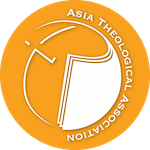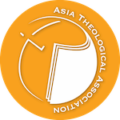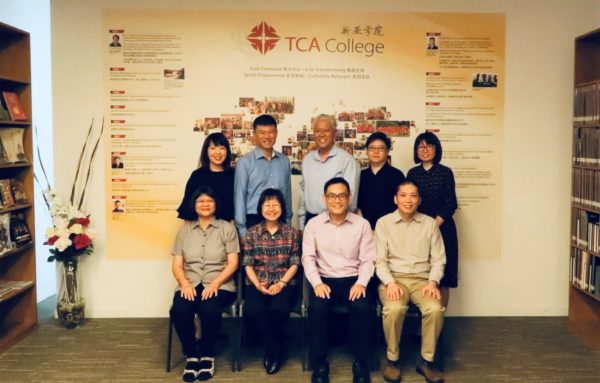The upcoming ATA General Assembly is definitely a very exciting one for it will be the launch of numerous things! Apart from launching the 50thanniversary celebration, among others, we will be launching six new additions to the Asia Bible Commentary Series and they are as follows:
1 SAMUEL by Koowon Kim
1 Samuel is full of riveting narratives related to the beginning of dynastic monarchy in ancient Israel, from which we can gain not only the spiritual wisdom about our relationship with the Lord, but also copious insights into the outworking of political power. This theologically sensitive and historically informed commentary will help both pastors and laymen to navigate through what is rightfully considered the best book ever written in the Hebrew language.
ESTHER by Peter Lau
Esther is a peculiar book. Set in Persia, there seems little interest in the Temple, the Promised Land, and prayer and other signs of Israelite religion. Most peculiar of all for a book of the Bible, there is no explicit mention of God! Yet there are many similarities with the setting of Esther and our situations in Asia today, which open ways for God to speak to us. This commentary will examine the book of Esther in its original context, then consider how to interpret and apply it in light of the rest of Scripture — both the Old Testament and the New.
JAMES by Andrew B. Spurgeon and Luke Cheung
In Hong Kong and China, criminals are often superstitiously religious. Ironically, both they and police officers worship the same folk god, Guan Gong, who represents righteousness! But their religiosity has no moral consequences – what both groups are seeking is protection from their opponents.
Unfortunately, some Asian Christians have a similar model of religiosity. They want God’s blessings, but they do not want God to affect how they live. James will have none of this. He is convinced that our devotion to God must be reflected in the way we live, and so he writes a letter that is full of sound, practical advice. He speaks of how difficult it is to control our tongues, and how much we need to do so. He speaks against greed and envy, wrong desires, faith without substance, complaining, gossiping, and unfair labor practices. He gives wise advice about enduring suffering, knowing the source of temptation, having an authentic faith, praying for ailing believers, and restoring believers who are tempted to depart from the truth.
PHILIPPIANS by Roji George
Asian Christians will identify with the context of the epistle to the Philippians; a church hemmed in on every side. The internal struggles of the community, personality conflicts among leaders, division within the church, and challenges from the false teachers coupled with the violent threat from outside of the church parallels the situation in many parts of Asia today. Paul’s ethical exhortations to the believers in Philippi enrich, guide, and correct so that a vibrant body of Christ can be established. Philippians teaches all Christians to make it their goal to know Christ more and more each day, imitate his example above all others, and bear bold witness to God’s offer of salvation to all, beyond every divisive border. This commentary on Philippians studies the text exegetically in its original dynamic context while seeking to hear the rhetorical thrust of the apostle’s words in the present Asian context.
COLOSSIANS AND PHILEMON by Brian Wintle and Bruce Nicholls
Paul’s epistle to the Colossians was written to a group of Christians who still held on to their past Jewish and pagan traditions alongside their faith in Christ. To help these believers, Paul provided guidance on how to deal with their past, showing them how faith in Christ brings new meaning to their situation. Similarly, in his epistle to Philemon, Paul addresses a culture where slavery was a common practice. He demonstrates the potential when slaves responded to the gospel and turned to Christ. Both of these epistles are extremely relevant to the church in Asia today, especially as it is confronted with syncretism, false teachings, and the mistreatment of the less fortunate and marginalized in society.
EZRA-NEHEMIAH by Joseph Too Shao and Rosa Ching Shao
The books of Ezra and Nehemiah illustrate how leaders confronted the challenges confronting the people of God during the post-exilic period. Zerubbabel inspires the people of God to rebuild the temple. Ezra helps in renewing their faith in God, and Nehemiah rebuilds the wall. These books testify to how God’s gracious hands guide and bless his people at each juncture. The careful exposition of these two books provides a model for how readers balance prayer and action with contextual application.
JONAH by Rosa Ching Shao
In this commentary, Dr. Rosa Shao beautifully weaves together the story of the biblical text, the relevant narratives of the Chinese, Filipino and Asian contexts, and psychological insights. Testifying to how she was drawn to the book of Jonah very early on, she shares how this book has spoken to her and demonstrates how others can hear the message of the book in their own context.
***
We are most definitely excited to launch these books in the upcoming General Assembly.. . but we are even more so excited to see our member institutions – and the church at large- benefitting from them.





Leave A Comment